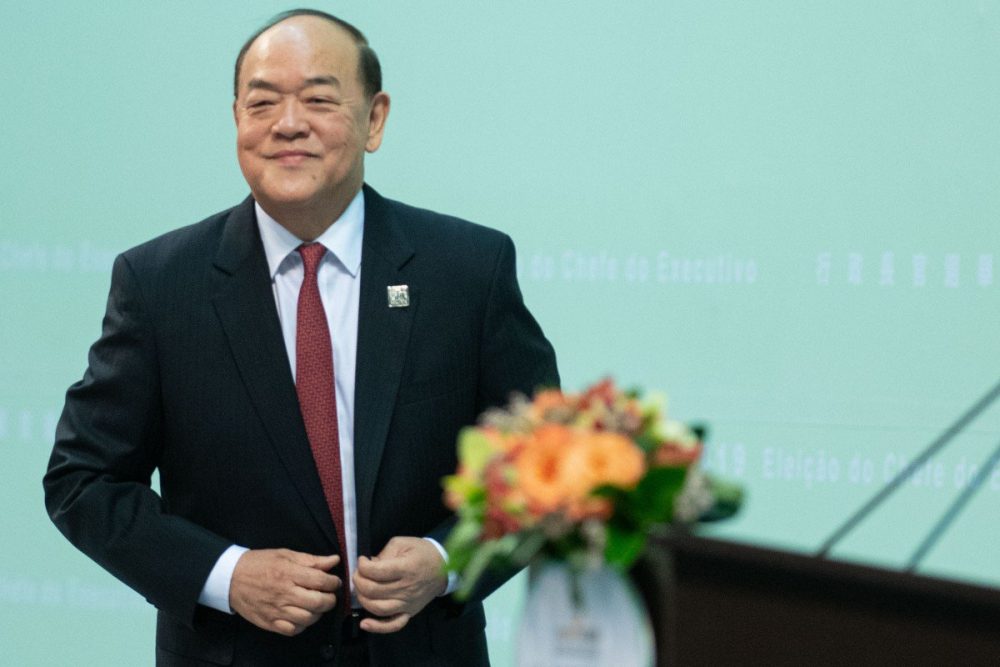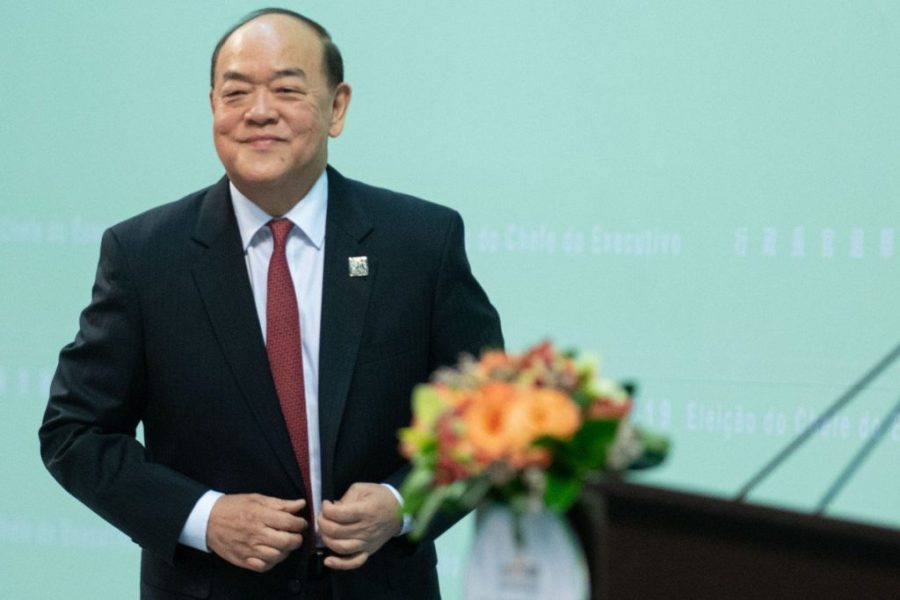Chief Executive-designate Ho Iat Seng said in an interview with state broadcaster China Central Television (CCTV) that Macau would become an example of the nation’s reunification.
Ho, who will be Macau’s fifth-term chief executive, said there was no issue with the “One Country, Two Systems” principle, adding that it could develop further and better. He also said that Macau was determined to become an example of the nation’s reunification.
HK unrest like a ‘big typhoon’
Ho likened the current unrest in Hong Kong to a “typhoon”, even though it was a “big one”. However, Ho predicted that it will pass one day.
Ho said that the turmoil in Hong Kong had raised public awareness of what “riots” and “rights” mean.
Regarding the proper balance between rights and duties, Ho said that some Hongkongers were “overemphasising” their rights to the detriment of their civic duties , adding that the chaos in Hong Kong should remind Macau people to pay special attention to education.
Mono-sector economy is ‘unhealthy & unsustainable’
In the CCTV interview, which was conducted in Macau recently and broadcast on Sunday, Ho noted that the gaming industry has been doing “very well”, including its related businesses in the hotel and retail sectors.
However, Ho stressed that it is “unhealthy and unsustainable” if a city only develops itself around one industry.
Apart from being worried about the repercussions of Macau’s mono-sector economy, Ho said he was particularly worried about its implications for young people’s employment prospects.
Ho pointed out that currently the average monthly income among young locals exceeds 20,000 patacas, and that about 80 per cent of local university graduates are working in the gaming sector because of its “better salaries”.
Ho said that this was not only an issue for young Macau people’s future development, but also a bigger issue for Macau’s future. He further pointed out that the gaming and public service sectors take up the majority of the local labour market, adding that the market lacks an entrepreneurial atmosphere.
GBA ‘important juncture’
Ho pointed out that the Guangdong-Hong Kong-Macau Greater Bay Area (GBA) project is an “important juncture” for achieving the long-desired moderate diversification of Macau’s economy.
Ho also underlined that Macau needs to grab the GBA chance and create opportunities for young people, adding that Macau also needed to have a bigger vision rather than only focusing on itself.
Ho also said in the 40-minute-long interview in Putonghua that many local residents were lacking knowledge of the GBA development, especially among local government officials, adding that many believed that only after “entering the mainland” were they in the GBA.
According to the Macau Post Daily, Ho stressed that if Macau continues to “be out of line” with updates about the GBA development, it would likely be “marginalised”.
The Greater Bay Area consists of nine cities in Guangdong as well as the special administrative regions of Hong Kong and Macau.






